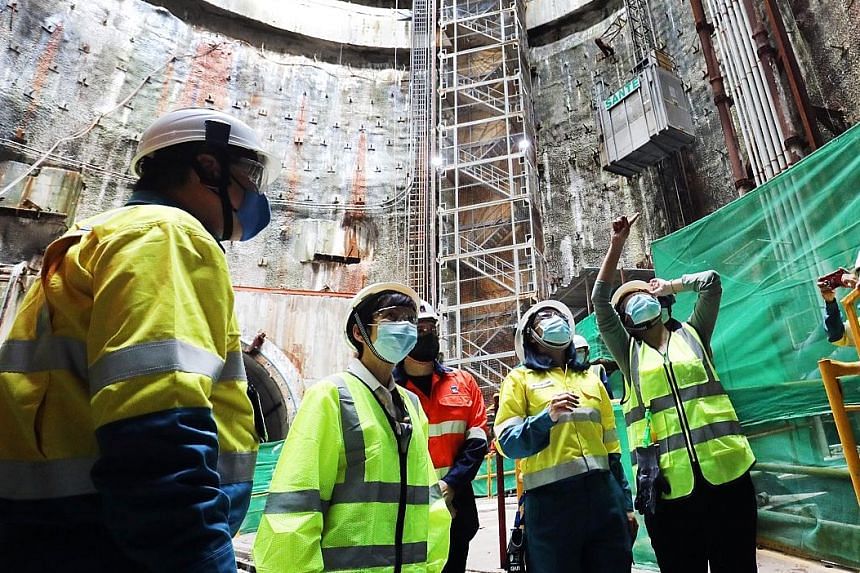Flash floods in Singapore on Saturday a symptom of climate change: Grace Fu


AsiaOne is launching a new section dedicated to environmental issues. Because we love the planet and we believe science. Starting from Earth Day 2021 (April 22), you’ll be able to find articles like this in one place.
SINGAPORE - The flash floods that took place last Saturday (April 17) after heavy rain show the impact of climate change and the importance of planning ahead, Minister for Sustainability and the Environment Grace Fu said on Monday (April 19).
"We are getting a lot more intense rainfall — one of the highest in the last 40 years — and we're seeing such intense rainfall more frequently," she told reporters on the sidelines of a visit to one of the sites for the Deep Tunnel Sewerage System (DTSS). "It shows us the importance of planning for climate change and also mitigation."
National water agency PUB, which is under her ministry's purview, has already spent $2 billion on drainage improvement works over the last decade, she said.
Close to $1.4 billion will be spent on such projects in the next five years, she added. There are 37 such projects ongoing, with another 10 to commence this year, said Ms Fu.
The latter include drainage works in Seletar North Link and Serangoon Avenue 2 and 3.
"This shows our determination to improving our water infrastructure, increasing our climate resilience, and also making us more resilient in a changing world," Ms Fu said.
Last Saturday, flash floods were reported across Singapore, with a number of pavements flooded in the western and central areas.
The prolonged heavy rain caused water levels in several drains and canals to exceed 90 per cent of their capacity.
Asked why flash floods still occur despite the earlier investments made into drainage works, Ms Fu pointed to the changing weather patterns driven by global heating.
"We have already been witnessing pattern changes, and we expect to see even wetter and drier patterns going forward," she said.
PUB said in a Facebook post last Saturday that the heaviest rainfall of 161.4mm was recorded in western Singapore from 12.25pm to 3.25pm.
This amount of rain corresponds to 91 per cent of Singapore's average monthly rainfall in April, and lies within the top 0.5 per cent of maximum daily rainfall records since 1981.
Ms Fu pointed to the DTSS — an underground network of sewers that uses gravity to channel used water to three centralised reclamation plants where it can be treated to produce Newater — as another example of long-term planning by the Government to prepare for the effects of climate change.
She added: "The DTSS allows us to capture and reclaim the water. If we are able to reclaim more, it makes us more resilient because our water can be reused over and over again."

This article was first published in The Straits Times. Permission required for reproduction.